Faith and Politics
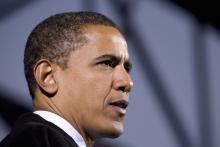
President Obama said Feb. 19 he doesn’t use terms like Islamic extremism because doing so would promote the false idea of a Western war with Islam, which would help extremists recruit more terrorists.
“No religion is responsible for terrorism — people are responsible for violence and terrorism,” Obama told delegates at the White House Summit on Countering Violent Extremism.
Obama also said military force alone will not defeat terrorism, and the nation must work with local communities to reduce the influence of those who advocate violent extremism.
“They are not religious leaders,” Obama said. “They are terrorists.”
He also said: “We are not at war with Islam — we are at war with people who have perverted Islam.”
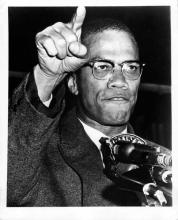
Rodnell Collins stood next to his uncle, Malcolm X, as the latter stared thoughtfully at Plymouth Rock during a visit to Massachusetts when Collins was a child.
It wasn’t until years later that Collins, the son of Malcolm’s sister, Ella Little Collins, would learn what his uncle was thinking: “We didn’t land on Plymouth Rock. The rock was landed on us.”
Malcolm X, the African-American nationalist leader and onetime minister of the Nation of Islam who was assassinated 50 years ago Feb. 21, inspired countless people with the frank and uncompromising way he spoke about race relations in America. And much of what he said about the experiences of black Americans remains true today, experts say.
Yet, while other civil rights leaders of the 1950s and ’60s are more broadly celebrated as American heroes, the fire with which Malcolm X spoke still overpowers the words he was saying.

I’m starting to think that Che Guevara and the Jesus of the Gospel according to Mark have an awful lot in common.
I should explain, first, that I’m in the first month of My Jesus Project, a year-long effort to more deeply live into the life, teaching and example of Jesus through prayer, study, and action. Each month, I explore a new dimension of Jesus with a mentor. This month is 'Jesus the Radical' with Christian Anarchist Mark Van Steenwyk. So of course coming from this point of view is going to impact my month's reading of the Gospel according to Mark. It's supposed to.
But in my 43 years of being exposed to the Bible, never have I seen the Jesus of Mark in the way I’m starting to see him now.
There are two recurring themes throughout the first several chapters in Mark: crowds and healing. The crowds following Jesus represent his growing power and influence — a growing threat to the occupying authorities of the Roman Republic — and though there are many general accounts of healing, the ones explicitly detailed in Mark all point to some act of political or religious defiance in the midst of the miraculous act of compassionate healing.
He’s either claiming the authority to forgive sins in front of religious leaders, healing on the sabbath, coming in contact with “unclean” women (like the bleeding woman in chapter five) without undergoing a cleansing mikvah ritual immediately afterward, or he’s touching dead bodies (also chapter five) without cleansing himself as well. So far, throughout the first half of Mark, every account of healing or forgiveness stands in direct defiance of some political or religious rule.
All human laws bow at the feet of the authority of God, which is not a rule of law, but rather a subversive, paradigm-shifting “from the bottom up” rule of love and compassion for others, first and foremost. Period.
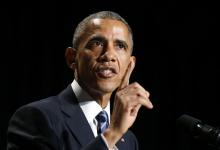
After taking heat from the religious right for saying Christians and Muslims have all committed horrors in God’s name, President Obama is now angering the religious left with an upcoming White House conference on combating ”violent extremism” that seems to focus only on Muslims.
The back-to-back controversies raise the question: Can Obama — or any president — safely discuss faith in today’s political crosswinds?
No, say experts who keep a close eye on presidential God talk. It’s a perilous walk, taken without a safety net as news and social media voices wait to savage him in a nanosecond.
Obama’s remarks at the National Prayer Breakfast triggered fury when Obama mentioned the Crusades, the Inquisition and Jim Crow segregation laws as examples of Christian violence in God’s name.
“This is not unique to one group or one religion,” Obama said. “There is a tendency in us, a sinful tendency that can pervert and distort our faith.”
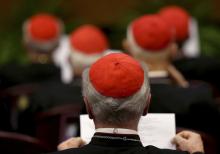
Pope Francis’ new cardinals, who will be formally installed on Feb. 14, represent everything the pope says he wants for the future of Catholicism: a church that reaches out to the periphery and the margins, and one that represents those frontiers more than the central administration in Rome.
That’s why he picked cardinals for the first time ever from countries like Myanmar and Cape Verde, as well as one from the Pacific archipelago of Tonga, which has just 15,000 Catholics out of a population of 100,000 spread across 176 islands.
The 15 new cardinals who are of voting age — five new “honorary” cardinals are over 80 and ineligible to vote for the next pope — come from 14 countries and include prelates from Ethiopia, Panama, Thailand, and Vietnam, and from places in Europe far removed from the traditional power dioceses of Old World Catholicism.
In fact, only one new cardinal comes from the Roman Curia, the Italian-dominated papal bureaucracy that Francis is struggling to tame in the wake of a series of scandals that revealed a deep dysfunction at Catholicism’s home office.
But will diversifying the College of Cardinals make it look more like the church’s global flock of 1.2 billion members?
Or will it leave the electors so fragmented by geography, language and viewpoints that they won’t be able to serve as a counterweight to career churchmen in Rome?

Junipero Serra, the 18th-century Franciscan missionary who’s set to be declared a saint later this year despite protests from Native American groups, could lose his place of honor in the U.S. Capitol if a California lawmaker has his way.
State Sen. Ricardo Lara, an openly gay Los Angeles Democrat, wants to replace a bronze statue of Serra with a monument honoring the late Sally Ride, the nation’s first female astronaut. Lara said Ride would become “the first member of the LGBT community” to be honored in Statuary Hall.
Each state is allowed two statues to represent local heroes; California’s other statue is of former President Ronald Reagan, who joined the collection in 2009, replacing a monument to itinerant preacher Thomas Starr King. The King and Serra statues were added in 1931.
“Dr. Sally Ride is a California native, American hero and stratospheric trailblazer who devoted her life to pushing the limits of space and inspiring young girls to succeed in math and science careers,” Lara said in a statement.
“She is the embodiment of the American dream.”
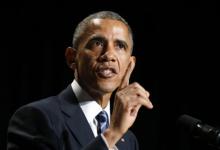
Despite the fuming of a former Republican governor, President Obama didn’t offend “every believing Christian in the United States” when he noted at a national prayer breakfast that we, too, “committed terrible deeds” in the name of our religion.
I, for one, was pleased to have us called back from the “high horse” that Christian religionists often occupy when criticizing other faiths while ignoring the mote in our own eye.
In our pursuit of religious victory, we Christians have at times been a scourge on civilization. We have slaughtered many, and not just centuries ago in a safe and distant past but still today.
We have served as apologists for slavery, apartheid, racial segregation, white terrorism of blacks in the South, suppression of labor, and repression of the poor and immigrant. Some of our misguided brethren are declaring war now on women and on gays, as if God’s promise to love all of humanity needed to be ignored.
We have winked at our own scandals while presuming to judge our neighbors for their flaws. We have sought special favors — such as tax exemption — and used the benefits to serve ourselves. With the world around us descending into violence and intolerance, we bicker about doctrine and property ownership.
Our hands are stained. Plain and simple.

President Obama’s political opponents are outraged over his remarks at last week’s National Prayer Breakfast comparing Islamic violence to historic Christian violence. Jim Gilmore, former chairman of the Republican National Committee, called the remarks “the most offensive I’ve ever heard a president make in my lifetime.”
But anyone who is angry with Obama’s speech must also express the same wrath toward one of the greatest presidential speeches in American history, Abraham Lincoln’s Second Inaugural Address, delivered 150 years ago next month.
Obama used his annual remarks at the National Prayer breakfast to condemn radical Islam (though he didn’t use the term). In the process, he made some more general comments about how religion has been used — both today and in the past — to promote violence.
What has rankled many conservatives is Obama’s statement that “during the Crusades and the Inquisition, people committed terrible deeds in the name of Christ.” He then brought his historical analogy closer to home:
“In our home country, slavery, and Jim Crow all too often was justified in the name of Christ.”
Craig Stephen Hicks, a 46-year-old white male, has been charged with three counts of first degree murder, according to a Chapel Hill Police Release. After shooting three students in the head early Tuesday evening, Hicks turned himself in at a local police department in Pittsboro. The victims included a married couple – Deah Barakat, 23, and Yusor Mohammad, 21 – and their sister, Mohammad Abu-Salha, 19.
All three were currently attending or planning to attend schools in Chapel Hill. Although reports of previous of a conflict between the shooter and the victims are not confirmed, many have speculated religious bias played a significant role in the crime.

In his famous passage on love, Paul shifts our attention from the what to the how:
"If I speak in the tongues of mortals and of angels, but do not have love, I am a noisy gong or a clanging cymbal. And if I have prophetic powers, and understand all mysteries and all knowledge, and if I have all faith, so as to remove mountains, but do not have love, I am nothing. If I give away all my possessions, and if I hand over my body so that I may boast, but have not love, I gain nothing."
He’s not talking about the content of our arguments. He’s talking about the process. For Paul, it is not enough that we do “Christian” sorts of actions, no matter how great they are. We must act in a Christian style — with love.
Christian arguments, then, should reflect this style. They should be patient and kind. They should not be boastful or arrogant or rude.
But the reality of our Scriptures and the reality of our God is that love can — and in some cases, should — be tough. This love sees that there must be space for righteous anger. It recognizes that patience can too easily become a luxury for the privileged. We believe in a God who gets angry on behalf of those he loves. We believe in a Jesus who overturns tables in the temple courts.
The problem is that most readers of this article will applaud at either the thought of a kind, patient argument or at the thought of a tough, angry argument. The trick is to deeply desire both.

The Supreme Court will decide whether to allow same-sex marriage nationwide later this year. But it’s leaving little doubt which way it’s leaning.
The latest evidence came Feb. 9 when the high court denied Alabama’s request to block gay marriages while the state appeals a federal judge’s ruling that allowed gays and lesbians to wed.
That was the same decision the justices reached in Florida two months ago, allowing the Sunshine State to become the 36th in the nation where same-sex marriage is legal. Alabama now becomes the 37th.
But things were different last year, when the Supreme Court temporarily blocked gay marriages in Utah in January, and in Virginia in August, while the legal issue played out.
Why the change?

After listening to one newscast after another rightly condemn the barbaric killing of that Jordanian air force pilot at the bloody hands of ISIS, I couldn't sleep. My mind kept roaming the past trying to retrieve a vaguely remembered photograph that I had seen long ago in the archives of a college library in Texas.
Suddenly, around two in the morning, the image materialized in my head. I made my way down the hall to my computer and typed in: “Waco, Texas. Lynching.”
Sure enough, there it was: the charred corpse of a young black man, tied to a blistered tree in the heart of the Texas Bible Belt. The victim's name was Jesse Washington. The year was 1916. America would soon go to war in Europe "to make the world safe for democracy."
My father was twelve, my mother eight. I was born 18 years later, at a time, I would come to learn, when local white folks still talked about Washington's execution as if it were only yesterday. This was not medieval Europe. Not the Inquisition. Not a heretic burned at the stake by some ecclesiastical authority in the Old World. This was Texas, and the white people in that photograph were farmers, laborers, shopkeepers, some of them respectable congregants from local churches in and around the growing town of Waco.

Sparked by the shooting death of Mike Brown in Ferguson, the subsequent deaths at the hands of law enforcement of Eric Garner in New York and 12 year-old Tamir Rice in Cleveland, protests under the banners of #ferguson, #icantbreathe, and #blacklivesmatter have spread around the country and a passionate conversation about the role of race in America has been rejoined. These protests, along with coverage by news media and the voices of social commentators and faith leaders — as well as the well-timed critical success of the movie Selma — have moved matters of race to the fore of our cultural consciousness and conversation in a way rarely seen since the Civil Rights movement of the 1950’s and 1960’s.
And yet, despite this heightened awareness about the experience of people of color, there remains a great distance and disconnect between white and minority communities regarding not only the actions of law enforcement, but also the varied manifestations of systemic and institutional racism. Indeed, the very real troubles experienced by communities of color are largely invisible to many whites. In Ferguson itself, many whites prior to the death of Mike Brown reported being unaware of the tension between African-American community and law enforcement. Nationwide, whites and African-Americans had very different perspectives. Whereas 80 percent of African Americans said Mike Brown’s shooting raised issues about race, only 37 percent of whites said the same.
In a time when renewed engagement is desperately needed, it is difficult to have dialogue when a vast majority of whites cannot empathize with the experience of communities of color, or, in some cases, acknowledge that there is a problem at all.

America is a nation established on certain inalienable rights. The right to life. The right to liberty. The right to pursue happiness as one sees fit. The right, as a religious organization, to sue a government and its officials whenever you don’t get what you want.
You may not remember that last one from social studies class — and to be honest, I don’t recall Jefferson expounding upon it, either — but it is nevertheless a right the fundamentalist group Answers in Genesis and its president, Ken Ham, availed themselves of last week with the announcement of their forthcoming lawsuit against the state of Kentucky, its governor, and its tourism secretary.
The kerfuffle is over AiG’s Ark Encounter — the “creationist theme park” complete with a 510-foot wooden replica of Noah’s floating barn (except this one won’t float, plus it costs 70 million bucks) — and specifically, the $18 million in special tax incentives the Commonwealth’s tourism department had initially approved in 2011 before retracting them last year.
The goal of the incentives is to promote the construction of job-creating tourist attractions in Kentucky, and AiG’s project initially held water. What caused it to fall out of favor with the Bluegrass State was the group’s increasingly vocal insistence that it intended to: 1) require its employees to sign a statement of faith affirming, among other things, their devotion to the idea that the universe was created sometime more recently than the invention of beer by the Mesopotamians, and 2) operate the park pretty much like its Creation Museum — i.e., as evangelistic outreach.
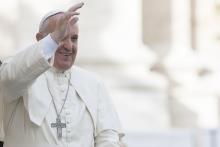
The Francis Revolution is crossing the Atlantic and coming to the heart of the nation’s Capitol. News broke yesterday that Pope Francis has accepted Speaker John Boehner’s invitation to address a rare joint session of Congress during his upcoming trip to the United States on Sept. 24.
This is the first time that a pope has addressed Congress and provides a world-class opportunity for the Holy Father to lift up the Gospel’s social justice message to the most powerful legislative body in the world.
So what will the Jesuit from Argentina talk about? Studying his nearly two-year tenure as the Bishop of Rome suggests that Pope Francis will focus particularly on the scandal of inequality and exclusion.
Last April, Pope Francis tweeted that “inequality is the root of all social evil.” The seven-word tweet caused an uproar in American media, but the truth is that Francis had been saying the same thing for years. In his 2013 letter Joy of the Gospel, Francis wrote “just as the commandment ‘Thou shalt not kill’ sets a clear limit in order to safeguard the value of human life, today we also have to say ‘thou shalt not’ to an economy of exclusion and inequality. Such an economy kills.”
With reports last fall suggesting that economic inequality in the United States is at its highest levels since the Great Depression, Pope Francis will likely call on our elected leaders to transform our economy into one where no one is left behind.
1. MLK's Mother Was Assassinated, Too: The Forgotten Women Of Black History Month
"Historical omission points toward a culture’s subconscious beliefs that some people matter less than others. When female stories are muted, we are teaching our kids that their dignity is second class and the historical accounts of their lives is less relevant."
"For the majority of new parents, whose penniless postpartum months (or weeks, or days, or whatever they can afford to take without pay, which is often nothing) are simply the result of the way things are in a country that venerates motherhood but in practice accords it zero economic value, the situation … makes parenting a privileged pursuit, takes women out of the workforce, and ultimately affirms public and professional life as being built for men."
3. WATCH: From Prison to the Pulpit
Rev. Darren Ferguson shares the story of his journey from an inmate at Sing Sing witnessing first-hand the effects of our broken criminal justice system to preaching from the pulpit. In this powerful video, he gives the viewer a glimpse into the realities of the system — and issues a challenge to the church.
4. Harper Lee, Author of ‘To Kill a Mockingbird,’ Is to Publish a Second Novel
With longstanding fame as a classic tale of racial and social injustice, 'To Kill a Mockingbird' is the lone work of author Harper Lee. Lee, 88, now reveals she wrote a sequel to the classroom favorite. The book, 'Go Set a Watchman' features a now-adult Scout visiting her aging father, Atticus.
5. No Worship Services in Public Schools, De Blasio Tells Supreme Court
In NYC Mayor Bill de Blasio’s 2013 campaign, the candidate opposed a city policy that prohibited churches from renting public schools for services. "In response, religious voters helped de Blasio trounce his opposition with 73 percent of the vote. But after de Blasio took office in January 2014, he didn’t make the change, even though it could be done executively." This month de Blasio went a step further by filing a court petition in support of the city’s policy.
6. A Republican Against Prisons
"One of the most potent arguments against mass incarceration, for conservatives, is that if you believe in limited government and are against dependence on the state, and you look at our criminal-justice system, you’re just not going to be very impressed by it. We have about one out of every hundred adults in this country under total state control. Think about that."
7. Islamic State Selling, Crucifying, Burying Children Alive in Iraq — UN
There is seemingly no end to the brutality perpetrated by ISIS. But this latest report details how the group is trafficking children — from Yazidi and Christian, but also Sunni and Shi’ite communities.
8. The Evolution of the Word ‘Slut’ and the Problems with Reclaiming It
An informative Q&A with Leora Tanenbaum, author of the recently released ‘I Am Not a Slut: Slut Shaming and the Age of the Internet.’ Tanenbaum takes on online harassers, the difference between ‘slut-bashing’ and ‘slut-shaming,’ and the implications of racial privilege in the conversation.
9. Croatia Just Canceled the Debts of its Poorest Citizens
"Although the program is expected to cost between 210 million and 2.1 billion Croatian kuna ($31 million and $300 million), according to conflicting reports by Austrian press agencyAPA and Reuters, the Croatian government expects economic long-term benefits that will outweigh the short-term investment."
10. Why There's So Much Riding on ‘Fresh Off the Boat’
As one AsAm FB friend put it, "I cannot believe I just watched an AsAm family on network TV. I also can't believe how long it took to happen."
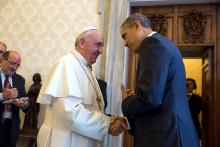
Pope Francis will make an unprecedented address to Congress on Sept. 24 during his first visit to the United States.
House Speaker John Boehner announced Feb. 5 that the pontiff accepted the invitation Boehner extended last year.
“In a time of global upheaval, the Holy Father’s message of compassion and human dignity has moved people of all faiths and backgrounds,” Boehner said in a statement. “His teachings, prayers, and very example bring us back to the blessings of simple things and our obligations to one another.”
No pope or religious leader who serves as a head of state has ever addressed Congress, according to the U.S. House Historian’s Office.
In a brief statement, the Archdiocese of Washington said: “It is a great honor and tremendous joy to welcome our Holy Father, Pope Francis, to the Archdiocese of Washington during his proposed pastoral visit to the United States in September.
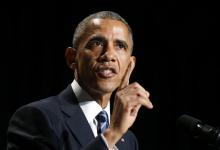
President Obama on Feb. 5 called for an emphasis on what is just about the world’s religions as a way to counter the ways faith has been distorted across the globe.
“We see faith driving us to do right,” he said to more than 3,500 people attending the annual National Prayer Breakfast. “But we also see faith being twisted and distorted, used as a wedge — or worse, sometimes used as a weapon.”
He urged believers of all faiths to practice humility, support church-state separation and adhere to the Golden Rule as ways to keep religion in its proper context.
“As people of faith, we are summoned to push back against those who try to distort our religion — any religion — for their own nihilistic ends,” Obama said.
“Here at home and around the world we will constantly reaffirm that fundamental freedom: freedom of religion, the right to practice our faith how we choose, to change our faith if we choose, to practice no faith at all if we choose, and to do so free of persecution and fear and discrimination.”

With measles outbreaks in 14 states and health authorities imploring parents to weigh the minimal risks of vaccines against the ravages of preventable disease, some Christians are raising an objection of a completely different sort: the abortion connection.
Abortion?
The Internet rumors that claim vaccinations mean having tiny pieces of aborted fetuses injected into your body are flat-out wrong, yet there is a grain of truth in the assertion that vaccinations and abortions are linked.
Many of the most common vaccines, for rubella and chicken pox for example, are grown in and then removed from cells descended from the cells of aborted fetuses. Pregnant women aborted them about 40 years ago by choice, and not with the intent of aiding vaccine production.
Yet for some religious believers, those facts do not lift what they see as a moral prohibition against vaccination.

It looks like the death penalty may be on life support.
January was set to be the deadliest month for U.S. executions in 2015, but nine of the 15 executions were stopped. In an unprecedented wave, three of the deadliest states stopped executions planned for last month — Texas, Oklahoma, and Missouri. February has just begun, but nine of its 12 scheduled executions have been halted.
Last year was not a good year for the death penalty, either, as death sentences hit a 40-year low and executions were at a 20-year low.
There were botched executions such as that of Clayton Lockett, who writhed in pain for 43 minutes before dying of a heart attack, with the Oklahoma prison warden calling it “a bloody mess.”
Then there were the exonerations, such as that of Ricky Jackson in Ohio, who spent 39 years in prison for a crime he didn’t commit, convicted solely on the testimony of a 12-year-old boy who recanted.